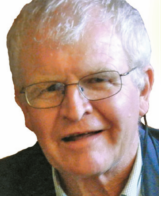

The pursuit of happiness is well ingrained in our national psyche, exemplified by that memorable phrase in our Declaration of Independence. Yet happiness can be elusive.
According to the 2020 World Happiness Report, the U.S. ranks 18th among 153 countries, which isn’t bad, but below many European countries as well as Iceland, New Zealand, Canada, Israel and Costa Rica.
Our economy, to a degree, feeds off a certain perception of dissatisfaction. Marketers work to convince us that, if we purchase this or that toy or experience, we will be happier — even as psychology teaches that this is rarely the case.
I recall some years back reading “Happier: Learn the Secrets to Daily Joy and Lasting Fulfillment” by Tal Ben-Shahar, based on his popular Harvard course. The students, like many of the rest of us, are taught to strive to achieve some future goal — even if we are miserable in the present — and we will eventually achieve prosperity and happiness.
Ben-Shahar describes someone adopting this approach as a “rat racer” who, “once he reaches his destination and realizes that material prosperity does not make him happy, there is nothing to sustain him.”
Instead, Ben-Shahar argues we should strive for a meaningful life with “a selfgenerated purpose that possesses personal significance, rather than one that is dictated by society’s standards and expectations.” Bottom line: Happiness, at some basic level, needs to flow from within; we cannot achieve it solely from external factors.
Having pondered this subject for many years, I have come to the conclusion that gratitude is the internal factor that mostly drives happiness. One of my favorite quotes is by Henry Matisse: “There are always flowers for those who want to see them.” The glass may be half empty, but do we take enough time to really appreciate the half-full portion?
Cynthia Whitaker, CEO of Greater Nashua Mental Health, wrote in this publication’s Dec. 4-17, 2020, issue: “Expressing gratitude is simply taking the time to consider all the positive things in life, big and small. Yet it isn’t easy because we are wired to notice the problems and negatives in life.” Practice is required, and she offers concrete ways to do that.
What of happiness in the workplace? We all know people who go through the motions and do the minimum required with a constant eye on the clock. Sadly, they are likely stuck in the half-empty part of the glass, feeling that work is something to be endured.
Gratitude may need to start within each of us, but leaders have an opportunity to make a difference, too.
In a recent Brené Brown podcast, Eric Mosley, author of “Making Work Human: How Human-Centered Companies are Changing the Future of Work and the World” advocated for an overhaul of traditional HR practices. People need human connection with purpose, meaning and gratitude, he said. Leaders who build a positive culture lead companies that outperform others with happier, more productive employees.
Relationships and how we treat each other matter. “What can I do in this moment to make this other person feel more capable and powerful?” asks leadership guru Jim Kouzes.
“Strange, isn’t it? Each man’s life touches so many other lives,” observes angel Clarence in the classic film “It’s a Wonderful Life.”
Jim Collins, author of “From Good to Great” talks about the trust wager. There is far more upside in opening relationships with trust rather than waiting for people to earn it, he argues. This people-oriented approach attracts the best talent and fosters ongoing employee development.
At the end of the day, each of us needs to find happiness within ourselves, but leaders (and co-workers, too) can create a climate that allows people to flourish, increasing employee satisfaction, retention and productivity.
For further thought: Consider ways that you could internalize gratitude in daily life. Make a list of what you are grateful for, in both your personal life and work. Reflect on how you interact with employees and co-workers. What can you do to develop more positive relationships and promote a climate of purpose, connection and gratitude?
We each have an extraordinary opportunity to make a difference in people’s lives, including our own. Don’t underestimate your impact!
Douglass P. Teschner, founder of Growing Leadership LLC, can be reached at dteschner@Growing-LeadershipLLC.com.